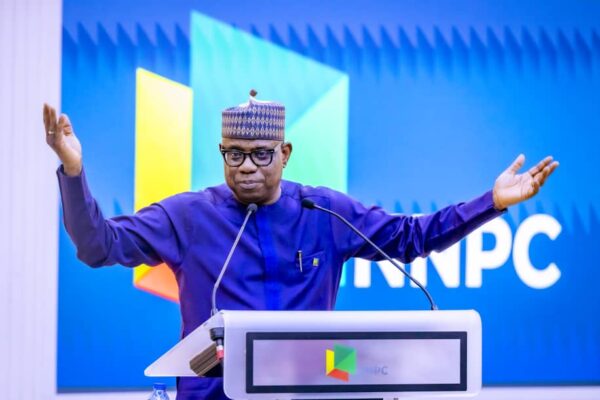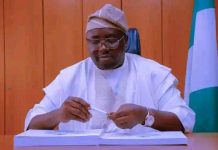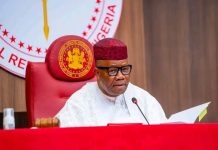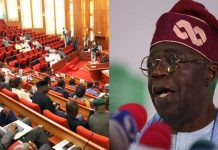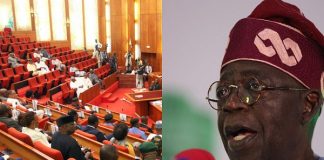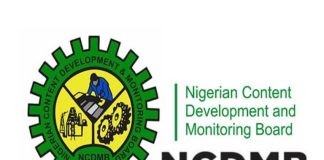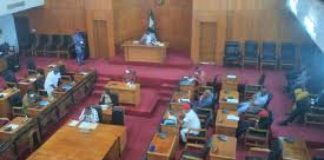🌿 Ruzu Non-Alcoholic Herbal Bitters
Ruzu Non-Alcoholic Herbal Bitters is a natural health supplement specially formulated to:
- ✅ Promote general wellness
- ✅ Detoxify the body
- ✅ Support the treatment of various ailments
Made from a powerful blend of 100% organic and medicinal herbs, Ruzu is completely alcohol-free, making it ideal for:
- 👪 All age groups
- 🌱 Health-conscious individuals
- 🌿 Anyone seeking non-alcoholic herbal remedies
Whether you're looking to boost your vitality, cleanse your system, or support healing the natural way, Ruzu Bitters offers a trusted herbal solution.
Bayo Ojulari, the Group Chief Executive Officer of the Nigerian National Petroleum Company Limited (NNPC), revealed that the recent strike by the country’s oil workers cost Nigeria 200,000 barrels of crude oil per day, for a total of over 600,000 barrels during the three-day supply disruption.
Following an altercation with Dangote Refineries’ management over the alleged dismissal of 800 employees, the Petroleum and Natural Gas Senior Staff Association (PENGASSAN) advised its members to go on strike last month.
Ojulari responded to the impact of the three-day strike on the oil industry by saying that the NNPC’s production capacity was particularly affected.
The GCEO said that Nigeria recently reached a 7 billion cubic foot (BCF) of gas in an interview with reporters following a meeting with President Bola Tinubu in Lagos. He called the strike action regrettable.
It was regrettable, in my opinion, that the Dangote and PENGASSAN dispute resulted in a strike. When necessary personnel are not present, vital facilities are unavailable, and maximum output is nearly impossible. We actually lost a substantial amount of production in this instance—more than 200,000 barrels per day—due to the deferred process.
According to him, “we also have gas production that was postponed and power generation that was impacted by that strike by about 1.2 megawatts.”
Nonetheless, he was pleased that the federal government’s prompt action, through the Office of the National Security Adviser (NSA) and the Federal Ministry of Labor, had ended the crisis.
“I am really happy that the federal government, under the direction of the Minister of Labor and with the full assistance of the National Security Adviser, was able to bring everyone together for a dialogue and to the table. Now, there is a communiqué that has been agreed upon regarding the next steps,” Ojulari continued.
Though there have been one or two places where we are still attempting to catch up, we have been able to return production to the status quo since then, so we are all extremely hoping that everyone will follow the information. Overall, we have progressively reverted to our current deferment and lost production,” he continued.
Nigeria has been able to increase its crude oil output since last month, according to Ojulari, who added that in September 2025, 1.68 million barrels of crude oil were produced daily, along with 7 billion cubic feet of gas per day.
“We’re moving along nicely. As you are aware, last month we produced 1.68 million barrels per day of oil, which was excellent. About five years had passed since the last one. In terms of significant events, we also achieved the largest gas production in recent memory, surpassing 7 billion cubic feet per day.
The NNPC CEO said, “We are also anticipating that by the end of the year, we should at least be clocking 1.8mbpd, with some Turnaround Maintenance we completed in August and September and all of those are supposed to come back this month.”
While he acknowledged that the recent PENGASSAN strike created an artificial shortage, he expressed optimism that the price of cooking gas would soon stabilize as the problem was resolved.
“The increase you witnessed was comparatively artificial because, during the strike, loading and movement were delayed for two to three days. As a result, you see the impact, and when things return to normal, it takes a while for distribution to fully resume. As a result of this delay, some people who had resources in reserves must pay a price.”
“Now that prices are normal again, I think it should go back to how they were before the strike,” Ojulari continued.
When questioned about the reason for his visit, Ojulari replied that it was a standard visit to inform the President of the oil industry’s progress, particularly the assignment he was given to draw in investors.
We have a great opportunity to inform the president on NNPC’s development, especially with regard to production performance and our efforts to draw in investment.
As you may remember, the President mandated that we increase gas output and production to a minimum of 2 million barrels per day by 2027 and up to 3 million barrels per day by 2030. So, in order to make sure we provide this increase, how are we doing this year and how are we getting ready for next? Therefore, that was one of the updates I provided to the President,” the engineer wrote.
When light lines resumed after the PENGASSAN and Dangote incidents, the NNPC, in the meantime, increased the pump price of Premium Motor Spirit (PMS), commonly referred to as gasoline, at its retail locations once more.
It has been discovered that NNPC stations in Abuja, particularly in the Wuse Zone 6 and Zone 4 districts, have raised their pump prices from N890 to N905 per litre. This represents a rise of N15, or around 1.7%.
According to Abubakar Maigandi, president of the Independent Petroleum Marketers Association of Nigeria (IPMAN), the new price increase is the result of recent supply disruptions brought on by the conflict between PENGASSAN and the Dangote Refinery.
The inconvenience caused by PENGASSAN’s strike, he stated. Our members continue to sell for between N885 and N895 per liter, nonetheless,” the IPMAN chief stated.

